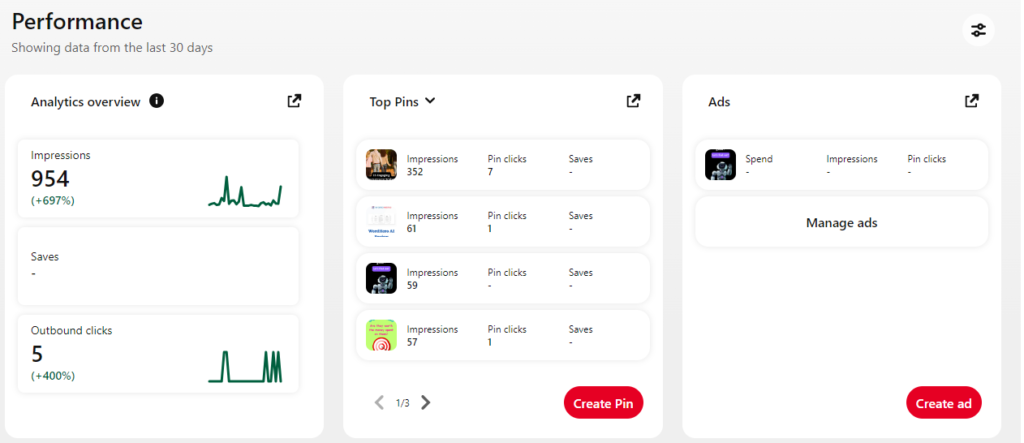Introduction
Table of Contents
Are you tired of the traditional methods of affiliate marketing that require a website? Do you want to explore a more visually-driven platform to promote products and earn commissions? Look no further than Pinterest! With its 450 million monthly active users, Pinterest is a goldmine for affiliate marketers looking to tap into the power of visual content. In this article, we will delve into the exciting world of affiliate marketing on Pinterest without the need for a website, unlocking strategies and techniques that can help you leverage this popular social media platform to drive traffic and boost your affiliate earnings.
When it comes to affiliate marketing, many people immediately think of blogs or websites as the primary medium for promotions. However, with Pinterest’s highly engaged user base and emphasis on image-centric content, there’s an untapped opportunity for savvy marketers to thrive without relying on a conventional website. We’ll reveal how you can create eye-catching Pins that capture attention, curate boards that resonate with your target audience, and implement effective call-to-action strategies—all without the need for a dedicated website. Get ready to discover the secrets of successful affiliate marketing on Pinterest as we unravel innovative approaches that can propel your online business forward in ways you never thought possible!
Benefits of Pinterest for affiliate marketing
Pinterest offers a unique and visually appealing platform for affiliate marketing without the need for a traditional website. With its emphasis on visual content, Pinterest enables affiliates to showcase products in a compelling and attractive manner, making it easier to capture the audience’s attention. This can lead to higher click-through rates and conversions compared to other social media platforms. Additionally, Pinterest’s user base is highly engaged and actively looking for inspiration and product recommendations, creating an ideal environment for affiliate marketers to reach potential customers.
Creating a Pinterest business account
Creating a Pinterest business account is the first step towards leveraging the platform for affiliate marketing. With a business account, you gain access to valuable features such as rich pins, Pinterest analytics, and promoted pins. These tools can help you drive traffic and engagement for your affiliate products.
When setting up your Pinterest business account, it’s crucial to optimize your profile by including relevant keywords in your bio and board descriptions. This will improve the discoverability of your content and attract more potential customers. Additionally, ensure that your boards are organized and visually appealing to entice users to explore further. By creating a cohesive brand presence on Pinterest, you can establish trust with your audience and increase the likelihood of them engaging with your affiliate links.
In addition to creating an attractive profile, consider joining group boards related to your niche. Collaborating with other pinners in these boards can expand the reach of your affiliate content and connect you with like-minded individuals who may be interested in what you have to offer. Engaging with the Pinterest community through comments, likes, and shares can also help build relationships and foster an active following that is more likely to convert into affiliate sales.
Choosing the right affiliate products to promote
When it comes to choosing the right affiliate products to promote on Pinterest, it’s essential to consider your audience’s interests and needs. One way to ensure you’re promoting the right products is by conducting thorough research on popular trends and topics within your niche. Look for products that align with these trends and offer value to potential buyers.
Consider also that Pinterest is used by approximately 83% of females aged between 35-54 years of age. So getting into a niche that this demographic has an interest will see you have a better chance of success. Niches such as fashion, jewelry clothes, beauty, health, travel, wedding, arts and crafts, home decor etc do really well.

Crafting engaging and click-worthy pins
Crafting engaging and click-worthy pins is the key to success in affiliate marketing on Pinterest. Instead of simply pinning product images, focus on creating visually appealing and informative graphics that stand out in a sea of content. Use vibrant colors, clear typography, and high-quality images to catch the user’s eye and encourage them to click through to your affiliate link.
Additionally, consider adding text overlays or captivating captions that highlight the benefits of the product or service you are promoting. By providing valuable information within the pin itself, you can entice users to learn more and increase the likelihood of them making a purchase through your affiliate link. Remember that Pinterest is a visual platform, so investing time in creating striking and persuasive pins will pay off in terms of engagement and ultimately, affiliate sales.
Utilizing Pinterest group boards and communities
Utilizing Pinterest group boards and communities is a powerful strategy for expanding your reach and driving traffic to your affiliate links. By joining active group boards related to your niche, you can tap into the existing community of engaged users, increasing the visibility of your pins and boosting their potential to drive conversions. When selecting group boards to join, look for those with high engagement rates and large follower counts, as these are more likely to generate significant traction for your affiliate marketing efforts.
Consider also creating or participating in Pinterest communities focused on specific topics relevant to your affiliate products. These communities allow you to connect with like-minded individuals, share valuable content, and engage in discussions that can ultimately lead to increased exposure and sales. By actively contributing helpful information within these communities rather than simply promoting products, you’ll build trust with potential customers and establish yourself as a credible source of information within your niche. Overall, leveraging Pinterest group boards and communities effectively can significantly enhance your affiliate marketing endeavors without needing a website presence.
Measuring and optimizing your affiliate marketing efforts
Measuring and optimizing your affiliate marketing efforts is crucial to maximizing your returns on Pinterest. Utilize Pinterest Analytics to track the performance of your pins and understand which ones are driving the most traffic and conversions. By identifying high-performing content, you can optimize your strategy by creating similar pins or targeting similar audiences.

In addition, A/B testing different pin designs, descriptions, and keywords can provide valuable insights into what resonates with your audience. This data-driven approach allows you to refine your affiliate marketing efforts, focusing on what works best to drive engagement and ultimately increase conversion rates. Keep a close eye on metrics such as click-through rates, saves, and purchases to continuously improve the effectiveness of your affiliate marketing on Pinterest.
Final Thoughts
Mastering affiliate marketing on Pinterest without a website requires a strategic and results-driven approach. By leveraging the platform’s visual appeal and user engagement, affiliate marketers can create compelling content that resonates with their target audience. Embracing Pinterest’s unique features such as rich pins, shoppable pins, and group boards can significantly enhance the visibility and reach of affiliate content.
Furthermore, establishing credibility and trustworthiness through authentic engagement with followers is crucial for long-term success in affiliate marketing on Pinterest. Leveraging user-generated content, collaborating with influencers, and consistently providing valuable recommendations are essential for building a loyal following. Ultimately, approaching affiliate marketing on Pinterest as a dynamic and evolving process rather than a one-time initiative can lead to sustained success in driving conversions and earning commissions without relying on a traditional website.




